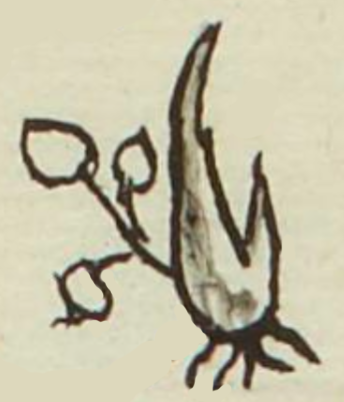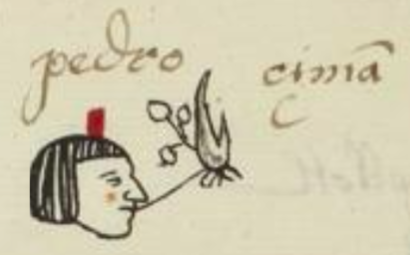Cima (MH812v)
This black-line drawing of the simplex glyph for the personal name, Cima ("Wild Potato," attested here as a man's name), shows a frontal view of a root vegetable with a sprig of three small leaves off to the left. The root or bulb looks jagged or broken. It has visible roots at its base. The root is shaded, which gives it three-dimensionality. In one of the glyphs for cimatl (below), the root appears divided in two.
Stephanie Wood
Apparently, this is both a wild potato (cimatl) and a medicinal plant (cimapatli or cimapahtli, with the glottal stop), which has been abbreviated in the name.
Stephanie Wood
pedro çimā
Pedro Cima
Stephanie Wood & Jeff Haskett-Wood
1560
Jeff Haskett-Wood
roots, raíces, plantas, plants, medicinas, herbs, hierbas, nombres de hombres

cima(tl), edible medicinal root of an herb, https://nahuatl.wired-humanities.org/content/cimatl
Raíz o Tubérculo Comestible
Stephanie Wood
Matrícula de Huexotzinco, folio 812v, World Digital Library, https://www.loc.gov/resource/gdcwdl.wdl_15282/?sp=699&st=image.
This manuscript is hosted by the Library of Congress and the World Digital Library; used here with the Creative Commons, “Attribution-NonCommercial-ShareAlike 3.0 License” (CC-BY-NC-SAq 3.0).






